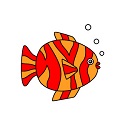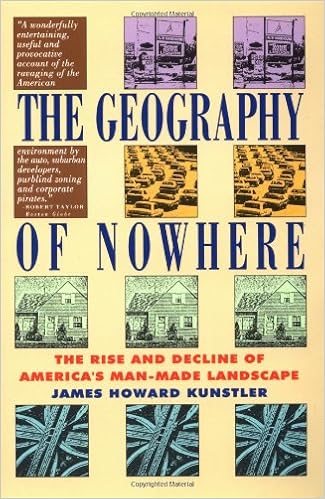What are you reading today/book club
Re: What are you reading today/book club
- 0
“clothing for attractive rich people in their 20s to go to weddings in” — Zack Johnson on Vineyard Vines
-

adiabatic - Posts: 301
- Joined: Tue Mar 31, 2015 12:10 pm
- Reputation: 374
Re: What are you reading today/book club
If you're of the opinion (as I am) that the "unmasking" is shitty and entirely unneeded then you probably are going to have avoided the initial article. So the articles that are supposedly critiquing it will actually be the ones the end up ringing that bell for you. I can only assume it's a very cynical move based on the assumption that some % of readers' reaction will be to instantly want to read said doxing and they'd rather keep the eyeballs on their own site. Which is almost certainly true, but it's still gross.
- 1
-

nope - Posts: 101
- Joined: Tue Jul 12, 2016 1:25 pm
- Reputation: 665
Re: What are you reading today/book club
so is this ferrante stuff any good? which one should i read?
- 2
-

pirxthepilot - Posts: 507
- Joined: Wed Jul 23, 2014 7:26 am
- Reputation: 2022
Re: What are you reading today/book club
Dunno I haven't even read them, the general consensus is just too rapturous and I'm nothing if not a tediously knee-jerk contrarian. If you did want to give her a go then The Neapolitan Novels would be the obvious place to begin, starting with My Brilliant Friend.
My reaction isn't really to do with this exact case at all, I just think that in general the idea that anyone has the "right" to know the identity of an of writer / artist / musician just because they've put some work out into the world is total bullshit.
My reaction isn't really to do with this exact case at all, I just think that in general the idea that anyone has the "right" to know the identity of an of writer / artist / musician just because they've put some work out into the world is total bullshit.
- 4
-

nope - Posts: 101
- Joined: Tue Jul 12, 2016 1:25 pm
- Reputation: 665
Re: What are you reading today/book club
I finished Argonauts (I have no comments about it) so can anyone recommend something I can read at work on kindle cloud reader?
Would prefer to read something not written by a straight white man as I've read enough straight white man books for this half of my life.
Would prefer to read something not written by a straight white man as I've read enough straight white man books for this half of my life.
- 10

-

bels - Yung Winona
- Posts: 5087
- Joined: Thu Jul 11, 2013 2:43 pm
- Reputation: 18872
Re: What are you reading today/book club
https://www.dropbox.com/s/42gjbr39exhmw ... .mobi?dl=0
pls read this, it's short and I took the time to convert the original file into mobi format and upload it.
pls read this, it's short and I took the time to convert the original file into mobi format and upload it.
- 2
-

Copeland - Posts: 262
- Joined: Sun Jan 18, 2015 9:40 pm
- Reputation: 794
Re: What are you reading today/book club
Elena Ferrante is very good. I think one of the reasons that her work resonates with many people I know is that it's quite rare to see work written from the point of view of a certain kind of clever and slightly cerebral woman – there's an infinity of male protagonists/narrators of this type but it's still disappointingly unusual to see women written as neither plot objects nor hapless creatures of 100% emotionality. But even if that's not something you feel is missing from your life, the (translated obv) prose is good and the depth of characterisation superb.
I feel weirdly reluctant to recommend the books in these terms because some part of me wants to avoid any suggestion of characterising them as 'women's books' and therefore obviously less serious and interesting than Normal Books but fuck that impulse
, and everyone: read Kuzhali Manickavel or Helen Oyeyemi.
I feel weirdly reluctant to recommend the books in these terms because some part of me wants to avoid any suggestion of characterising them as 'women's books' and therefore obviously less serious and interesting than Normal Books but fuck that impulse
, and everyone: read Kuzhali Manickavel or Helen Oyeyemi.
- 5
-

khayandhi - Posts: 87
- Joined: Mon Jan 12, 2015 11:17 am
- Reputation: 1015
Re: What are you reading today/book club
- 3
Last edited by nope on Thu Oct 13, 2016 10:02 am, edited 1 time in total.
-

nope - Posts: 101
- Joined: Tue Jul 12, 2016 1:25 pm
- Reputation: 665
Re: What are you reading today/book club
I read it too long ago but which part was the dance music and what else was wrong? I think the author said she wanted to create a character who's slightly smarter than herself so she might've had to bullshit a little for that. I would guess the birdwatching stuff is accurate since she seems pretty into it from interviews.
http://www.newyorker.com/magazine/2015/05/18/outside-in
http://www.newyorker.com/magazine/2015/05/18/outside-in
- 0
-

Copeland - Posts: 262
- Joined: Sun Jan 18, 2015 9:40 pm
- Reputation: 794
Re: What are you reading today/book club
yeah i havent read this but i'd be interested to know where you think she was 'off'.
- 0
-

pirxthepilot - Posts: 507
- Joined: Wed Jul 23, 2014 7:26 am
- Reputation: 2022
Re: What are you reading today/book club
Having read the interview my ornithology trust is fully restored. Phew. Also it turns out she's 50, lives in a tiny german town and wrote the damn thing in like 3 weeks so getting some minor club things wrong seems quite reasonable. Think I'll pick her new one as well, it sounds good.
That interview also reminds me that I've never read anything by Jonathan Franzen. Should I?
That interview also reminds me that I've never read anything by Jonathan Franzen. Should I?
- 0
-

nope - Posts: 101
- Joined: Tue Jul 12, 2016 1:25 pm
- Reputation: 665
Re: What are you reading today/book club
still i don't think it's whiny to point these things out, verisimilitude is not interesting in itself but i doubt she'd want to strike bad notes like that. reminds me of the writer guy in sex and the city who was mortified after carrie pointed out no manhattan woman would wear a scrunchie in 199-whatever
- 2
Last edited by pirxthepilot on Thu Oct 13, 2016 1:35 pm, edited 2 times in total.
-

pirxthepilot - Posts: 507
- Joined: Wed Jul 23, 2014 7:26 am
- Reputation: 2022
Re: What are you reading today/book club
speaking of which, alexandre singh is like the art world's dev patel, another brown niceboi / avatar. does like spoken word performances/ sculptural collages and his work often references sex & the city.
http://www.spruethmagers.com/exhibitions/355
http://www.spruethmagers.com/exhibitions/355
- 1
-

pirxthepilot - Posts: 507
- Joined: Wed Jul 23, 2014 7:26 am
- Reputation: 2022
Re: What are you reading today/book club
Not sure if many are into poetry, but today I had some free time and read Rupi Kaur's Milk and Honey. Having seen excerpts posted all over various social media pages, I knew that it was not really 'my kind' of poetry, but bought it anyway to see if it could change my mind (I mean, it is a New York Times bestseller).
All in all...it didn't. It reminded me of how a parent bird regurgitates food into its hatchling's mouth because the baby is not developed enough to hunt. Each poem was incredibly rudimentary (which isn't always bad), but more times than not, lacked any sort of thought provoking ideas to chew on. I would not recommend this as a piece of feminist literature when compared to the works of Plath, Waldman, or Dickinson, but I think it might be good as a stepping stone for those getting into poetry.
I am very torn to say these critical words though because the poems are not terrible, they just have a lot of room to grow, and art always is a representation of its environment-so obviously this style really grooves with most readers.
If anyone else has read this book, I would love to hear what you have to say about it.
On the opposite end of the literary spectrum, I have been thumbing through Bukowski's "You Get So Alone At Times That It Just Makes Sense" before bed and have been enjoying it quite a bit.
If anyone has any recommendations for poetry/poets (contemporary would be appreciated) to take a look at, I would greatly appreciate it-I am trying to broaden my taste as much as possible! :^)
All in all...it didn't. It reminded me of how a parent bird regurgitates food into its hatchling's mouth because the baby is not developed enough to hunt. Each poem was incredibly rudimentary (which isn't always bad), but more times than not, lacked any sort of thought provoking ideas to chew on. I would not recommend this as a piece of feminist literature when compared to the works of Plath, Waldman, or Dickinson, but I think it might be good as a stepping stone for those getting into poetry.
I am very torn to say these critical words though because the poems are not terrible, they just have a lot of room to grow, and art always is a representation of its environment-so obviously this style really grooves with most readers.
If anyone else has read this book, I would love to hear what you have to say about it.
On the opposite end of the literary spectrum, I have been thumbing through Bukowski's "You Get So Alone At Times That It Just Makes Sense" before bed and have been enjoying it quite a bit.
If anyone has any recommendations for poetry/poets (contemporary would be appreciated) to take a look at, I would greatly appreciate it-I am trying to broaden my taste as much as possible! :^)
- 4
Being young is like being one of these malenky machines
-

alexander delarge - Posts: 32
- Joined: Fri Aug 05, 2016 5:41 pm
- Reputation: 250
Re: What are you reading today/book club
thank you alexander for reminding me to grab a copy of On Cats
- 1
-

ramdomthought - Posts: 1102
- Joined: Wed Jul 10, 2013 11:53 pm
- Reputation: 5432
Re: What are you reading today/book club
I just finished Sapiens - A Brief History of Humankind by Yuval Noah Harari. Great book! I especially like the notion of myths. Harari argues that a good chunk of what constitutes society are myths. He defines a myth as a imaginary construct that often (but not necessarily) helps humans co-operate and repeatedly refer to different kinds of myths throughout the book. The most easily understood, and perhaps the most successful myth is money. The material worth of an object is completely dependent on how we subjectively put value on that product. Money is used to translate the worth between different products/commodities et cetera. It lubricates trade between people by allowing people to use an 'objective' product to trade for goods. You don't need to want money specifically to use it. Your end goal might be an apple, but you make hammers for a living. So instead of trading hammers you trade money. You all know how money works.
Some of these things were realisations I've had before. The fact that laws wouldn't exist without something resembling a human mind is not that hard to grasp. But what was interesting to me was how enormously many myths build our society. He mentions limited liability corporations as an example. Perfectly reasonable when you think about it, but not something I've considered before. A limited liability corporation is built purely on imagination. No one is such a corporation. Not the workers, not the CEO, not the shareholders. Before corporations a real person went bankrupt when a company ran into the gutter, but that is skipped with corporations. And this has helped us co-operate further, and most likely started quite a few arguments too.
When you think of a brand, say Adidas or whatever, you have a mental picture of what constitues Adidas. You have real sense on what they do and perhaps some insight as to how they do it. But Adidas is nothing else than fiction. The products they make are real, the people who produce them are real. But the whole image you have of Adidas is fictional. Marketing people deciding how the image of the company should be, designers projecting a consistent aesthetic, famous people modelling their garments. A lot of things suggest Adidas is something. Something physical, a real entity that if you only thought about it for a while you'd figure it out. But not even Adolf Dassler himself is what constitues Adidas today. It's all vapor. The logo wouldn't mean anything to someone who didn't know about the fictional corporation that is Adidas.
Further on other myths are taken up: ideologies, religions, laws and so on. As you might begin to notice quite fundamental parts of our world are argued to be built on imagination. And why wouldn't they? If we talk about something, it sounds logical and favours us both, why wouldn't we do it? If we can both agree to something, we'll most likely do it. They have all helped us to co-operate firstly, and then often helped us kill eachother later. It was both very inspiring but also incited a bit of cynisism in me. If for example human rights are only imaginary, why bother? You know. Of course we should bother, because they help humankind live better lives, but when you think about all of these things which fundamentally have no real (as in not imaginary) foundation it gets to me a little. And this is why so many of the large myths in our society are argued as universal. It would be quite a scary thing if everyone collectively stopped believing in money, human rights, laws, morals all at once. Perhaps it would be the most complete kind of anarchy that could exist.
I guess it sort of melts down into a semi-nihilistic view of the world where nothing really matters but we should keep imagining things anyway because it helps us to get forward as a collective. And it's quite often extremly fun. Harari takes up a whole range of other things outside of myths, but you'll have to read that, as well as a more eloquent explanation of myths in the book. I don't know if my explanation is completely banal or interesting, but the book does a good job of getting you to think about this sort of stuff.
Some of these things were realisations I've had before. The fact that laws wouldn't exist without something resembling a human mind is not that hard to grasp. But what was interesting to me was how enormously many myths build our society. He mentions limited liability corporations as an example. Perfectly reasonable when you think about it, but not something I've considered before. A limited liability corporation is built purely on imagination. No one is such a corporation. Not the workers, not the CEO, not the shareholders. Before corporations a real person went bankrupt when a company ran into the gutter, but that is skipped with corporations. And this has helped us co-operate further, and most likely started quite a few arguments too.
When you think of a brand, say Adidas or whatever, you have a mental picture of what constitues Adidas. You have real sense on what they do and perhaps some insight as to how they do it. But Adidas is nothing else than fiction. The products they make are real, the people who produce them are real. But the whole image you have of Adidas is fictional. Marketing people deciding how the image of the company should be, designers projecting a consistent aesthetic, famous people modelling their garments. A lot of things suggest Adidas is something. Something physical, a real entity that if you only thought about it for a while you'd figure it out. But not even Adolf Dassler himself is what constitues Adidas today. It's all vapor. The logo wouldn't mean anything to someone who didn't know about the fictional corporation that is Adidas.
Further on other myths are taken up: ideologies, religions, laws and so on. As you might begin to notice quite fundamental parts of our world are argued to be built on imagination. And why wouldn't they? If we talk about something, it sounds logical and favours us both, why wouldn't we do it? If we can both agree to something, we'll most likely do it. They have all helped us to co-operate firstly, and then often helped us kill eachother later. It was both very inspiring but also incited a bit of cynisism in me. If for example human rights are only imaginary, why bother? You know. Of course we should bother, because they help humankind live better lives, but when you think about all of these things which fundamentally have no real (as in not imaginary) foundation it gets to me a little. And this is why so many of the large myths in our society are argued as universal. It would be quite a scary thing if everyone collectively stopped believing in money, human rights, laws, morals all at once. Perhaps it would be the most complete kind of anarchy that could exist.
I guess it sort of melts down into a semi-nihilistic view of the world where nothing really matters but we should keep imagining things anyway because it helps us to get forward as a collective. And it's quite often extremly fun. Harari takes up a whole range of other things outside of myths, but you'll have to read that, as well as a more eloquent explanation of myths in the book. I don't know if my explanation is completely banal or interesting, but the book does a good job of getting you to think about this sort of stuff.
- 9
-

costanza - Posts: 66
- Joined: Tue Sep 27, 2016 4:43 pm
- Reputation: 263
Re: What are you reading today/book club
- 0
Last edited by Copeland on Fri Oct 28, 2016 10:33 pm, edited 1 time in total.
-

Copeland - Posts: 262
- Joined: Sun Jan 18, 2015 9:40 pm
- Reputation: 794
Re: What are you reading today/book club
Smashed through The Sound of Waves by Yukio Mishima over the course of two days. Given my vague knowledge of Mishima as the guy who slit his own belly after a failed coup, I was expecting something more political or weighty or whatever, but given that it was written sixteen years before his coup/suicide, I suppose I should take it as it seems to be: apolitical.
Nice, smooth read. If you like Ozu movies - where, in spite of the usual classic social barriers standing in the way of love, things work themselves out, and people who are victims of their own moral weakness turn out to be not all bad - you'll like this.
Toronna bookworms can grab it at the Bloor West BMV.
Nice, smooth read. If you like Ozu movies - where, in spite of the usual classic social barriers standing in the way of love, things work themselves out, and people who are victims of their own moral weakness turn out to be not all bad - you'll like this.
Toronna bookworms can grab it at the Bloor West BMV.
- 4
-

HexKeySet - Posts: 27
- Joined: Thu Feb 19, 2015 1:38 am
- Location: la belle ville
- Reputation: 109
Re: What are you reading today/book club
Beatnik flaxy recommendations? I always loved On The Road since I read it in high school and just finished Dharma Bums and was surprised at how much I enjoyed it. Should I keep going through Kerouac or should I check out some other authors? I've read a bit of Ginsberg poetry already.
- 2
-

JewTurk - Posts: 590
- Joined: Thu May 29, 2014 3:20 am
- Reputation: 1856
Re: What are you reading today/book club
Have been thinking this week that I now regret giving up on humanities (english flaxy especially) as early as I did (ASAP, ie post-GCSE). I read a lot of books but I feel like I completely lack the critical vocabulary or frameworks to construct a worthwhile response to them that goes beyond "I liked it", or "it reminded me of x". That's a slightly exaggeration, but I don't think I am able to form my disparate thoughts into anything coherent or particularly interesting. It's almost a form of imposter syndrome, where I feel like trying to going beyond "I liked it" would be kinda presumptuous, because what the hell do I know? Consequently I never really talk about the books I read, and I think that in turn has made me lazy in how I think about them too.
More generally, years and years of "STEM" (I hate this term btw) at sixth-form, university, and then job has meant that I have very little experience in constructing and then defending / improving a qualitative argument, rather than being wrong for a while, and then figuring it out and being right. It seems much scarier, like much more of yourself is on the line, to assert something that is "just" opinion and have it be taken seriously or taken apart (both, often). I don't know if something like an english flaxy degree would actually have helped me that much, but that's certainly the idea, right?
Assuming that those sorts of "art" degrees do (or at least can, for some non-trivial % of students) improve that sort of thing, it seems crazy to me that there's such a big push for people to do STEM (urgh) stuff instead. I'm fairly sceptical about university / getting a degree in general, but it seems to me that developing those sorts of skills intrinsically requires loads of feedback from peers / tutors / lecturers, where as if you wanted to you could get to grips with maths / physics / programming / etc on your own with resources like khan academy or coursera. They scale well, because you can automate so much of the feedback as most questions only have one correct answer.
Loads of people have made the points in the latter 2 paragraphs before, but I hadn't really thought much about how it had negatively affected me personally before for some reason.
More generally, years and years of "STEM" (I hate this term btw) at sixth-form, university, and then job has meant that I have very little experience in constructing and then defending / improving a qualitative argument, rather than being wrong for a while, and then figuring it out and being right. It seems much scarier, like much more of yourself is on the line, to assert something that is "just" opinion and have it be taken seriously or taken apart (both, often). I don't know if something like an english flaxy degree would actually have helped me that much, but that's certainly the idea, right?
Assuming that those sorts of "art" degrees do (or at least can, for some non-trivial % of students) improve that sort of thing, it seems crazy to me that there's such a big push for people to do STEM (urgh) stuff instead. I'm fairly sceptical about university / getting a degree in general, but it seems to me that developing those sorts of skills intrinsically requires loads of feedback from peers / tutors / lecturers, where as if you wanted to you could get to grips with maths / physics / programming / etc on your own with resources like khan academy or coursera. They scale well, because you can automate so much of the feedback as most questions only have one correct answer.
Loads of people have made the points in the latter 2 paragraphs before, but I hadn't really thought much about how it had negatively affected me personally before for some reason.
- 2
-

nope - Posts: 101
- Joined: Tue Jul 12, 2016 1:25 pm
- Reputation: 665
Re: What are you reading today/book club
In the spirit of reading books and having trivial opinions on them, this is what I've read since whenever we were talking about Nell Zink:
The Schopenhauer Cure by Irvin D. Yalom which a friend said was great but I thought was really irritating and smug.
Against Everything by Mark Greif which a different friend said was really irritating and smug but I thought was great.
Pond by Claire-Louise Bennett which a friend said was great and was.
Doctor Brodie's Report by Jorge Luis Borges which was good, but the whole "ahh, old {Argentinian name} told me this tale one night, and although he read it in {fictitious book} he found in {weird location} he swears that it is true" intro to every single story works a lot better when said story is about eg an infinite library, than when it's about a totally regular pair of dudes (sorry, "gauchos") having a fight one time.
Three Moments of an Explosion by China Melville which was good (and occasionally really impressively unpleasant) but I had no idea what the fuck was actually going on in a lot of the stories and frequently couldn't work out if I wasn't supposed to (fine) or I had just missed something (less fine).
Have also almost finished The Savage Detectives by Roberto Bolano which I have enjoyed but found to be a little bit too rambling, something I didn't think was an issue in the equally huge 2666. My aunt loves this book but says that pretty much the whole point of it is references and allusions to other South American literature, all of which is just sailing over my head I presume. See my previous post re "what the hell do I know?".
The Schopenhauer Cure by Irvin D. Yalom which a friend said was great but I thought was really irritating and smug.
Against Everything by Mark Greif which a different friend said was really irritating and smug but I thought was great.
Pond by Claire-Louise Bennett which a friend said was great and was.
Doctor Brodie's Report by Jorge Luis Borges which was good, but the whole "ahh, old {Argentinian name} told me this tale one night, and although he read it in {fictitious book} he found in {weird location} he swears that it is true" intro to every single story works a lot better when said story is about eg an infinite library, than when it's about a totally regular pair of dudes (sorry, "gauchos") having a fight one time.
Three Moments of an Explosion by China Melville which was good (and occasionally really impressively unpleasant) but I had no idea what the fuck was actually going on in a lot of the stories and frequently couldn't work out if I wasn't supposed to (fine) or I had just missed something (less fine).
Have also almost finished The Savage Detectives by Roberto Bolano which I have enjoyed but found to be a little bit too rambling, something I didn't think was an issue in the equally huge 2666. My aunt loves this book but says that pretty much the whole point of it is references and allusions to other South American literature, all of which is just sailing over my head I presume. See my previous post re "what the hell do I know?".
- 2
-

nope - Posts: 101
- Joined: Tue Jul 12, 2016 1:25 pm
- Reputation: 665
Re: What are you reading today/book club
my senior level seminar class is on cyberpunk, which i know nothing about
we are reading:
william gibson - neuromancer (duh)
sterling - schismatrix (just cracked this bad boy open and am very lost)
masamune shirow - ghost in the shell (+oshii's film)
pat cadigan - synners
nalo hopkinson - midnight robber
elizabeth bear - hammered
peter watts - blindsight
we're also playing the videogame deus ex: human revolution
aside from neuromancer, could any cyberpunkers comment on these books (or videogame even)?? is this stuff LEGIT?
we are reading:
william gibson - neuromancer (duh)
sterling - schismatrix (just cracked this bad boy open and am very lost)
masamune shirow - ghost in the shell (+oshii's film)
pat cadigan - synners
nalo hopkinson - midnight robber
elizabeth bear - hammered
peter watts - blindsight
we're also playing the videogame deus ex: human revolution
aside from neuromancer, could any cyberpunkers comment on these books (or videogame even)?? is this stuff LEGIT?
- 1
-

INNIT - Posts: 269
- Joined: Sun Aug 24, 2014 2:42 am
- Reputation: 1382
Re: What are you reading today/book club
I must not be much of a "cyberpunker" because i've only read the gibson, the GITS film, and although i've heard of DE:HE, I've only actually played the original Deus Ex, which tbf was an extremely good game.
I might actually copy this reading list for my own general cyberpunk education purposes.
I might actually copy this reading list for my own general cyberpunk education purposes.
- 3
-

thephfactor - Posts: 277
- Joined: Tue Dec 23, 2014 3:57 am
- Reputation: 977
Re: What are you reading today/book club
cyberpunk seminar? so cool! neuromancer is incredible but that goes without saying...
I'm reading this, among other stuff for school. Really well written history of land use and development in the US. Also very depressing. Especially for going into planning work...

edit: yeah I'm doing an interdisciplinary hippy-dippy undergrad planning program here in seattle. just started the program but i'm digging it so far! as per the book there's a lot to be done in the US...
I'm reading this, among other stuff for school. Really well written history of land use and development in the US. Also very depressing. Especially for going into planning work...

edit: yeah I'm doing an interdisciplinary hippy-dippy undergrad planning program here in seattle. just started the program but i'm digging it so far! as per the book there's a lot to be done in the US...
- 1
Last edited by radicalbusiness on Wed Jan 11, 2017 11:50 pm, edited 1 time in total.
-

radicalbusiness - Posts: 105
- Joined: Mon Jan 27, 2014 12:02 am
- Location: Seattle
- Reputation: 632
Re: What are you reading today/book club
i would prob take the opposite position on your borges point, i think the whole conceit of slipping a philosophical idea into a kipling-esque narrative becomes a bit one-note and predictable after a while, and prefer the move back into straight folkloric territory.
dunno if you saw what we were saying in the art thread a while back talking about a film maker i worked with, he claimed to have unearthed a dance trend of kids humping furniture in suburban living rooms, and the convoluted backstory ('i found this grainy video mis-categorised while randomly following links on youtube') struck me as an update of this borges-ian device. other curators remain convinced he is telling it 'straight' though, we actually had quite big arguments on the subject
dunno if you saw what we were saying in the art thread a while back talking about a film maker i worked with, he claimed to have unearthed a dance trend of kids humping furniture in suburban living rooms, and the convoluted backstory ('i found this grainy video mis-categorised while randomly following links on youtube') struck me as an update of this borges-ian device. other curators remain convinced he is telling it 'straight' though, we actually had quite big arguments on the subject
- 2
Last edited by pirxthepilot on Wed Jan 11, 2017 9:01 am, edited 1 time in total.
-

pirxthepilot - Posts: 507
- Joined: Wed Jul 23, 2014 7:26 am
- Reputation: 2022
Re: What are you reading today/book club
yes chesterton is another obvious influence i didnt want to make too many references because whiny millennials
haven't read any borges for a long time (pretty much for that reason) but remember a late interview where he talks about icelandic saga-ists eventually tiring of circumlocutions like ' whale- road', preferring just to say 'the sea'. i think he eventually tired of his 'labyrinths' era mode in a similar fashion.
i think harmony korine took some of the idea for TH from cameron jamie : "this shit is fuckin mindblowing'
https://www.youtube.com/watch?v=nkmlRdkTamY
haven't read any borges for a long time (pretty much for that reason) but remember a late interview where he talks about icelandic saga-ists eventually tiring of circumlocutions like ' whale- road', preferring just to say 'the sea'. i think he eventually tired of his 'labyrinths' era mode in a similar fashion.
i think harmony korine took some of the idea for TH from cameron jamie : "this shit is fuckin mindblowing'
https://www.youtube.com/watch?v=nkmlRdkTamY
- 0
Last edited by pirxthepilot on Wed Jan 11, 2017 1:38 pm, edited 1 time in total.
-

pirxthepilot - Posts: 507
- Joined: Wed Jul 23, 2014 7:26 am
- Reputation: 2022
Re: What are you reading today/book club
RE cyberpunk, rjbman convinced me to read Gibson, and i really liked Neuromancer. Need to read more of his work stat (not sure where to continue tho). I started Snow Crash by Neal Stephenson but found the corniness (as well as the Orientalism) to be unbearable so I stopped. I also produced a magazine of cyberpunk-ish literary work this winter called "Bubblegum Cyberpunk," available for sale at 2 coffee shops in Omaha.
Also if you are into cyberpunk you might enjoy Adam Curtis' documentary films. All Watched Over by Machines of Loving Grace is an obvious starting point for the cyberpunk, and is overtly influenced by Gibson.
Also if you are into cyberpunk you might enjoy Adam Curtis' documentary films. All Watched Over by Machines of Loving Grace is an obvious starting point for the cyberpunk, and is overtly influenced by Gibson.
- 4
-

thephfactor - Posts: 277
- Joined: Tue Dec 23, 2014 3:57 am
- Reputation: 977
Re: What are you reading today/book club
I would like one copy of bubblegum cyberpunk what is your paypal
- 0

-

bels - Yung Winona
- Posts: 5087
- Joined: Thu Jul 11, 2013 2:43 pm
- Reputation: 18872
Who is online
Users browsing this forum: No registered users and 10 guests
